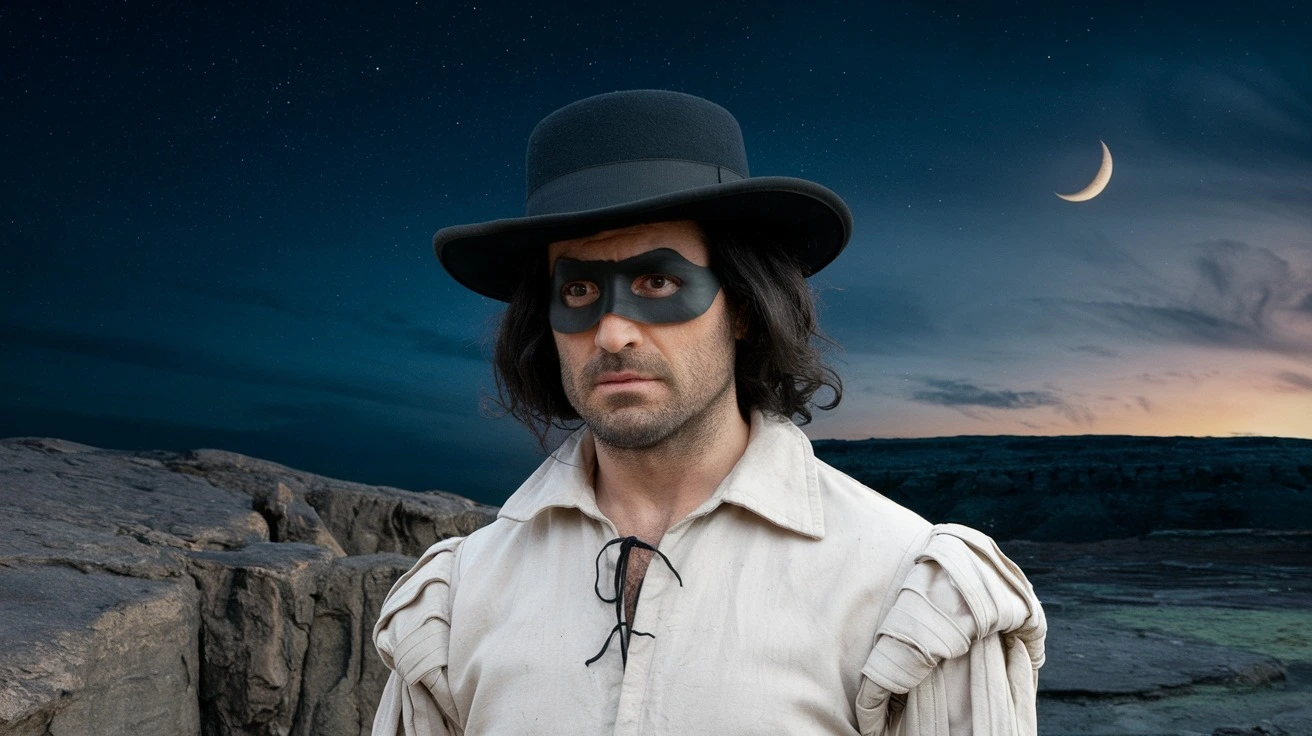This collection delves into some of the most memorable William Shakespeare Quotes, each encapsulating his deep understanding of various aspects of existence.
William Shakespeare, the quintessential playwright and poet of the English language, is celebrated for his profound insights into the human condition.
His works span many themes, from the complexities of love and power to the intricacies of human nature and fate.
On-Time and Change
“Time is the devourer of all things.”
Author: William Shakespeare
Description:
This quote from The Rape of Lucrece reflects the relentless and consuming nature of time, which affects all things.
“What’s past is prologue.”
Author: William Shakespeare
Description:
From The Tempest, this line suggests that previous events set the stage for future actions and developments.
“The time is out of joint: O cursed spite, That ever I was born to set it right!”
Author: William Shakespeare
Description:
In Hamlet, this quote expresses Hamlet’s frustration at the state of the world and his role in addressing its dysfunction.
“All things are ready if our mind be so.”
Author: William Shakespeare
Description:
From Henry V, this quote emphasizes the power of mindset and readiness to achieve one’s goals.
“A rose by any other name would smell as sweet.”
Author: William Shakespeare
Description:
Juliet’s assertion in Romeo and Juliet that names are irrelevant to the true essence of things.
“The wheel of fortune turns round incessantly, and who can say to himself, I shall today be uppermost?”
Author: William Shakespeare
Description:
This quote highlights the unpredictable nature of fortune and success.
“The future comes one day at a time.”
Author: William Shakespeare
Description:
This line reflects the gradual and sequential nature of time and the unfolding of future events.
“How quickly nature falls into revolt when gold becomes her object!”
Author: William Shakespeare
Description:
From The Merchant of Venice, this quote addresses how greed and wealth can disrupt natural order and values.
“To be wise and love exceeds man’s might; that dwells with gods above.”
Author: William Shakespeare
Description:
From A Midsummer Night’s Dream, this line suggests that combining wisdom and love is a divine quality.
“The time will come when winter will be a memory.”
Author: William Shakespeare
Description:
This quote reflects on the transient nature of seasons and times, implying that difficult periods will eventually pass.
On Leadership and Authority
“Uneasy lies the head that wears a crown.”
Author: William Shakespeare
Description:
From Henry IV, Part 2, this line suggests that leadership and power come with significant stress and responsibility.
“It is not in the stars to hold our destiny but in ourselves.”
Author: William Shakespeare
Description:
This quote emphasizes personal agency and responsibility over fate.
“The crown does not make the king.”
Author: William Shakespeare
Description:
This quote suggests that true leadership and authority are not solely defined by titles or symbols.
“There is a tide in the affairs of men which, taken at the flood, leads on to fortune.”
Author: William Shakespeare
Description:
From Julius Caesar, this quote highlights the importance of seizing opportunities when they arise.
“The best revenge is to be unlike him who performed the injury.”
Author: William Shakespeare
Description:
From Hamlet, this line advises that the most effective way to respond to wrongdoing is by rising above it.
“The man that hath no music in himself, nor is not moved with concord of sweet sounds, is fit for treasons, stratagems, and spoils.”
Author: William Shakespeare
Description:
In The Merchant of Venice, this quote reflects how a lack of sensitivity to beauty can lead to moral corruption.
“To be a well-favored man is the gift of fortune, but to write and read comes by nature.”
Author: William Shakespeare
Description:
From The Winter’s Tale, this line suggests that certain traits are given by fortune, while skills are innate.
“The king’s a beggar, now the play is done.”
Author: William Shakespeare
Description:
This quote reflects on the transient nature of power and status after the end of a significant event or performance.
“For we are old, and on our quicksands build, that’s what we must do.”
Author: William Shakespeare
Description:
From King Lear, this line highlights the precarious nature of life and the need to act despite uncertainties.
“The devil can cite Scripture for his purpose.”
Author: William Shakespeare
Description:
In The Merchant of Venice, this quote warns that even malign intentions can use righteous appearances to their advantage.
On Reflection and Self-Knowledge
“The more a man knows, the more he forgives.”
Author: William Shakespeare
Description:
In Measure for Measure, this quote implies that greater understanding leads to greater compassion and forgiveness.
“I know not what the custom is to make, but I have found the secret of how to use it.”
Author: William Shakespeare
Description:
From Hamlet, this quote reflects on the individual’s ability to adapt and use traditions or customs effectively.
“The fool doth think he is wise, but the wise man knows himself to be a fool.”
Author: William Shakespeare
Description:
In As You Like It, this quote highlights the distinction between true wisdom and foolish self-delusion.
“The eye sees not itself but by reflection, by some other things.”
Author: William Shakespeare
Description:
From Hamlet, this line reflects on how self-awareness and understanding are often achieved through external perspectives.
“We know what we are, but know not what we may be.”
Author: William Shakespeare
Description:
In Hamlet, this quote expresses the uncertainty about one’s potential and future possibilities.
“No man is an island, entire of itself.”
Author: William Shakespeare
Description:
From The Tempest, this line emphasizes the interconnectedness of individuals and the impact of one’s actions on others.
“Our doubts are traitors and make us lose the good we oft might win by fearing to attempt.”
Author: William Shakespeare
Description:
From Measure for Measure, this line highlights how doubt and fear can prevent us from achieving potential success.
“What’s done cannot be undone.”
Author: William Shakespeare
Description:
From Macbeth, this quote acknowledges the irreversible nature of certain actions and their consequences.
“The mind is its place, and in itself can make a heaven of hell, a hell of heaven.”
Author: William Shakespeare
Description:
This quote explores the power of the mind to shape one’s perception of reality.
“The heart is oftentimes a weaker guide than the head.”
Author: William Shakespeare
Description:
In The Merchant of Venice, this quote reflects on how emotional decisions can sometimes lead to less rational outcomes.
On Life and Existence
“To be, or not to be: that is the question.”
Author: William Shakespeare
Description:
This iconic line from Hamlet contemplates the nature of existence and whether it is better to endure life’s challenges or end them.
“All the world’s a stage, and all the men and women merely players.”
Author: William Shakespeare
Description:
From As You Like It, this quote reflects on the metaphorical nature of life as a performance, where people have roles to play.
“The course of true love never did run smooth.”
Author: William Shakespeare
Description:
This line from A Midsummer Night’s Dream suggests that genuine love faces many obstacles and difficulties.
“This above all: to thine own self be true.”
Author: William Shakespeare
Description:
From Hamlet, this quote emphasizes the importance of staying true to one’s values and identity.
“What’s in a name? That which we call a rose by any other name would smell as sweet.”
Author: William Shakespeare
Description:
Juliet’s line from Romeo and Juliet argues that names themselves do not affect the essence of things or people.
“The better part of Valour is Discretion.”
Author: William Shakespeare
Description:
From Henry IV, Part 1, this quote suggests that true bravery involves the wisdom to choose when to act and when to be cautious.
“To die, to sleep— To sleep: perchance to dream.”
Author: William Shakespeare
Description:
This line from Hamlet explores the idea of death as a peaceful sleep and the uncertainty of what dreams might come.
“Our doubts are traitors and make us lose the good we oft might win by fearing to attempt.”
Author: William Shakespeare
Description:
This quote from Measure for Measure highlights how doubt and fear can prevent us from achieving potential success.
“I come to tell you what is already known.”
Author: William Shakespeare
Description:
From Cymbeline, this line reflects the idea of reaffirming what is already understood rather than bringing new information.
“In time we hate that which we often fear.”
Author: William Shakespeare
Description:
This quote from Antony and Cleopatra suggests that prolonged exposure to fear can lead to hatred of the feared object or situation.
On Love and Romance
“Shall I compare thee to a summer’s day? Thou art more lovely and more temperate.”
Author: William Shakespeare
Description:
From Sonnet 18, this famous line praises the beloved’s beauty as surpassing that of a summer’s day.
“Love looks not with the eyes, but with the mind, and therefore is winged Cupid painted blind.”
Author: William Shakespeare
Description:
In A Midsummer Night’s Dream, this quote suggests that love is a matter of the heart and mind, not just physical appearance.
“When I saw you I fell in love, and you smiled because you knew.”
Author: William Shakespeare
Description:
This line captures the mutual recognition and joy in the moment of falling in love.
“How far are we from Venice? I think twenty miles.”
Author: William Shakespeare
Description:
In The Merchant of Venice, this quote reflects a sense of distance and longing that is common in romantic contexts.
“The lady doth protest too much, methinks.”
Author: William Shakespeare
Description:
From Hamlet, this quote implies that excessive denial or resistance might reveal the truth.
“Love is a smoke made with the fume of sighs.”
Author: William Shakespeare
Description:
This line from Romeo and Juliet describes love as something created from the longing and emotions of those who are in love.
“A rose by any other name would smell as sweet.”
Author: William Shakespeare
Description:
Juliet’s assertion in Romeo and Juliet that names are irrelevant to the inherent qualities of things or people.
“With love’s light wings did I o’er-perch these walls; For stony limits cannot hold love out.”
Author: William Shakespeare
Description:
In Romeo and Juliet, this quote conveys the idea that love can transcend physical barriers and limitations.
“Let me not to the marriage of true minds Admit impediments.”
Author: William Shakespeare
Description:
From Sonnet 116, this quote discusses the unwavering nature of true love, which remains constant despite obstacles.
“When you are as old as I am, you will not think it too late to learn.”
Author: William Shakespeare
Description:
This quote suggests that age should not be a barrier to learning and growth.
On Wisdom and Knowledge
“Wisely and slow. They stumble and run fast.”
Author: William Shakespeare
Description:
In Romeo and Juliet, this line advises caution and careful consideration rather than rushing into things.
“The more a man knows, the more he forgives.”
Author: William Shakespeare
Description:
In Measure for Measure, this quote implies that greater understanding leads to greater compassion and forgiveness.
“There is nothing either good or bad, but thinking makes it so.”
Author: William Shakespeare
Description:
From Hamlet, this quote explores the idea that perceptions shape our understanding of morality and reality.
“It is not in the stars to hold our destiny but in ourselves.”
Author: William Shakespeare
Description:
In Julius Caesar, this quote emphasizes personal agency and responsibility over fate.
“Knowledge is the wing wherewith we fly to heaven.”
Author: William Shakespeare
Description:
This quote suggests that knowledge elevates and enriches the human spirit, leading to a higher understanding.
“The best revenge is to be unlike him who performed the injury.”
Author: William Shakespeare
Description:
From Hamlet, this line advises that the most effective way to respond to wrongdoing is by rising above it.
“A fool thinks himself to be wise, but a wise man knows himself to be a fool.”
Author: William Shakespeare
Description:
In As You Like It, this quote highlights the distinction between true wisdom and foolish self-delusion.
“Give me my robe, put on my crown; I have Immortal longings in me.”
Author: William Shakespeare
Description:
From Antony and Cleopatra, this line reflects the desire for transcendence and eternal significance.
“To be natural is such a very difficult pose to keep up.”
Author: William Shakespeare
This quote reflects on the challenge of maintaining authenticity in one’s behavior and actions.
“What’s done cannot be undone.”
Author: William Shakespeare
Description:
From Macbeth, this quote acknowledges the irreversible nature of certain actions and their consequences.
On Power and Ambition
“Some are born great, some achieve greatness, and some have greatness thrust upon them.”
Author: William Shakespeare
Description:
From Twelfth Night, this quote explores different paths to greatness and success.
“The crown does not make the king.”
Author: William Shakespeare
Description:
This quote suggests that true leadership and authority are not solely defined by titles or symbols.
“I would not be a queen for all the world.”
Author: William Shakespeare
Description:
From Richard III, this line reflects a rejection of power or position in favor of personal integrity or preference.
“Ambition should be made of sterner stuff.”
Author: William Shakespeare
Description:
In Julius Caesar, this quote critiques the nature of ambition, suggesting it should be resolute and unwavering.
“All power is in the hands of those who are willing to conquer it.”
Author: William Shakespeare
Description:
This quote highlights the notion that power is gained through determination and effort.
“Uneasy lies the head that wears a crown.”
Author: William Shakespeare
Description:
From Henry IV, Part 2, this line suggests that leadership and power come with significant stress and responsibility.
“Power tends to corrupt, and absolute power corrupts absolutely.”
Author: William Shakespeare
Description:
This quote discusses the corrupting influence of power, especially when it is unchecked.
“To climb steep hills requires a slow pace at first.”
Author: William Shakespeare
Description:
From Henry VIII, this quote advises that achieving ambitious goals requires patience and persistence.
“A man can die but once.”
Author: William Shakespeare
Description:
In Henry IV, Part 2, this quote reflects the idea that death is a singular event and should not be feared excessively.
“Things done well and with care, exempt themselves from fear.”
Author: William Shakespeare
Description:
This quote suggests that careful and well-considered actions can avoid negative outcomes and fears.
On Fate and Destiny
“The fault, dear Brutus, is not in our stars, but in ourselves, that we are underlings.”
Author: William Shakespeare
Description:
From Julius Caesar, this quote asserts that personal responsibility, not fate, determines one’s status and position.
“Fortune and men’s eyes are two things ever in the world.”
Author: William Shakespeare
Description:
This line reflects on how luck and perception play roles in determining one’s fortune.
“Our remedies oft in ourselves do lie, which we ascribe to heaven.”
Author: William Shakespeare
Description:
In All’s Well That Ends Well, this quote suggests that solutions to our problems are often within us, not dependent on fate.
“There’s a tide in the affairs of men which, taken at the flood, leads on to fortune.”
Author: William Shakespeare
Description:
From Julius Caesar, this quote highlights the importance of seizing opportunities when they arise to achieve success.
“What’s past is prologue.”
Author: William Shakespeare
Description:
In The Tempest, this quote suggests that past events set the stage for future actions and possibilities.
“The wheel comes full circle: I am here.”
Author: William Shakespeare
Description:
From King Lear, this quote reflects on the cyclical nature of fate and the return to a starting point.
“Destiny is a name often given in retrospect to choices that had dramatic consequences.”
Author: William Shakespeare
Description:
This quote reflects on how significant choices are often labeled as destiny in hindsight.
“We are such stuff as dreams are made on, and our little life is rounded with a sleep.”
Author: William Shakespeare
Description:
From The Tempest, this quote explores the ephemeral nature of life and its dream-like qualities.
“The wheel of fortune turns round incessantly, and who can say to himself, I shall today be uppermost?”
Author: William Shakespeare
Description:
This quote highlights the unpredictability of fortune and success.
“The heavens themselves, the planets, and this earthy body are both in their motions, all bound to one law.”
Author: William Shakespeare
Description:
This quote reflects on the interconnectedness and order of the cosmos and human existence.
On Justice and Morality
“The quality of mercy is not strained; it droppeth as the gentle rain from heaven upon the place beneath.”
Author: William Shakespeare
Description:
In The Merchant of Venice, this quote describes mercy as a natural and benevolent force that should be freely given.
“Injustice anywhere is a threat to justice everywhere.”
Author: William Shakespeare
Description:
This quote highlights the interconnected nature of justice and how wrongs in one place can affect justice in another.
“Conscience does make cowards of us all.”
Author: William Shakespeare
Description:
From Hamlet, this line suggests that guilt and moral awareness can lead to hesitation and fear.
“The law hath not been dead, though it hath slept.”
Author: William Shakespeare
Description:
In Measure for Measure, this quote reflects the enduring nature of justice, even if it is not always actively enforced.
“Though this be madness, yet there is the method isn’t.”
Author: William Shakespeare
Description:
From Hamlet, this line points to the underlying logic or reason that can exist even within apparent madness.
“When we are born we cry that we are come to this great stage of fools.”
Author: William Shakespeare
Description:
From King Lear, this quote reflects on the inherent foolishness of the human condition.
“To be honest, as this world goes, is to be one man picked out of ten thousand.”
Author: William Shakespeare
Description:
This quote highlights the rarity and value of true honesty in a world where it is uncommon.
“There is no darkness but ignorance.”
Author: William Shakespeare
Description:
From Taming of the Shrew, this quote suggests that lack of knowledge is akin to being in darkness.
“The better part of Valour is Discretion.”
Author: William Shakespeare
Description:
In Henry IV, Part 1, this line highlights that true bravery involves the wisdom to choose when to act and when to be cautious.
“They do not love that do not show their love.”
Author: William Shakespeare
Description:
This quote emphasizes that love must be demonstrated through actions, not just words.
On Human Nature
“The fault, dear Brutus, is not in our stars, but in ourselves, that we are underlings.”
Author: William Shakespeare
Description:
From Julius Caesar, this quote suggests that personal responsibility, not fate, determines one’s status and position.
“All that glitters is not gold.”
Author: William Shakespeare
Description:
In The Merchant of Venice, this line warns that appearances can be deceiving, and true value lies beneath the surface.
“The better part of Valour is Discretion.”
Author: William Shakespeare
Description:
In Henry IV, Part 1, this quote highlights that true bravery involves the wisdom to choose when to act and when to be cautious.
“I am constant as the northern star.”
Author: William Shakespeare
Description:
From Julius Caesar, this quote reflects on steadfastness and unwavering resolve.
“We are such stuff as dreams are made on, and our little life is rounded with a sleep.”
Author: William Shakespeare
Description:
From The Tempest, this quote explores the ephemeral nature of life and its dream-like qualities.
“Our doubts are traitors and make us lose the good we oft might win by fearing to attempt.”
Author: William Shakespeare
Description:
From Measure for Measure, this line highlights how doubt and fear can prevent us from achieving potential success.
“There is nothing either good or bad, but thinking makes it so.”
Author: William Shakespeare
Description:
From Hamlet, this quote explores the idea that perceptions shape our understanding of morality and reality.
“What’s done cannot be undone.”
Author: William Shakespeare
Description:
From Macbeth, this quote acknowledges the irreversible nature of certain actions and their consequences.
“All the world’s a stage, and all the men and women merely players.”
Author: William Shakespeare
Description:
From As You Like It, this quote reflects on the metaphorical nature of life as a performance, where people have roles to play.
“When we remember we are all mad, the mysteries disappear and life stands explained.”
Author: William Shakespeare
Description:
Twain suggests that acknowledging human irrationality can make life’s complexities more understandable.










